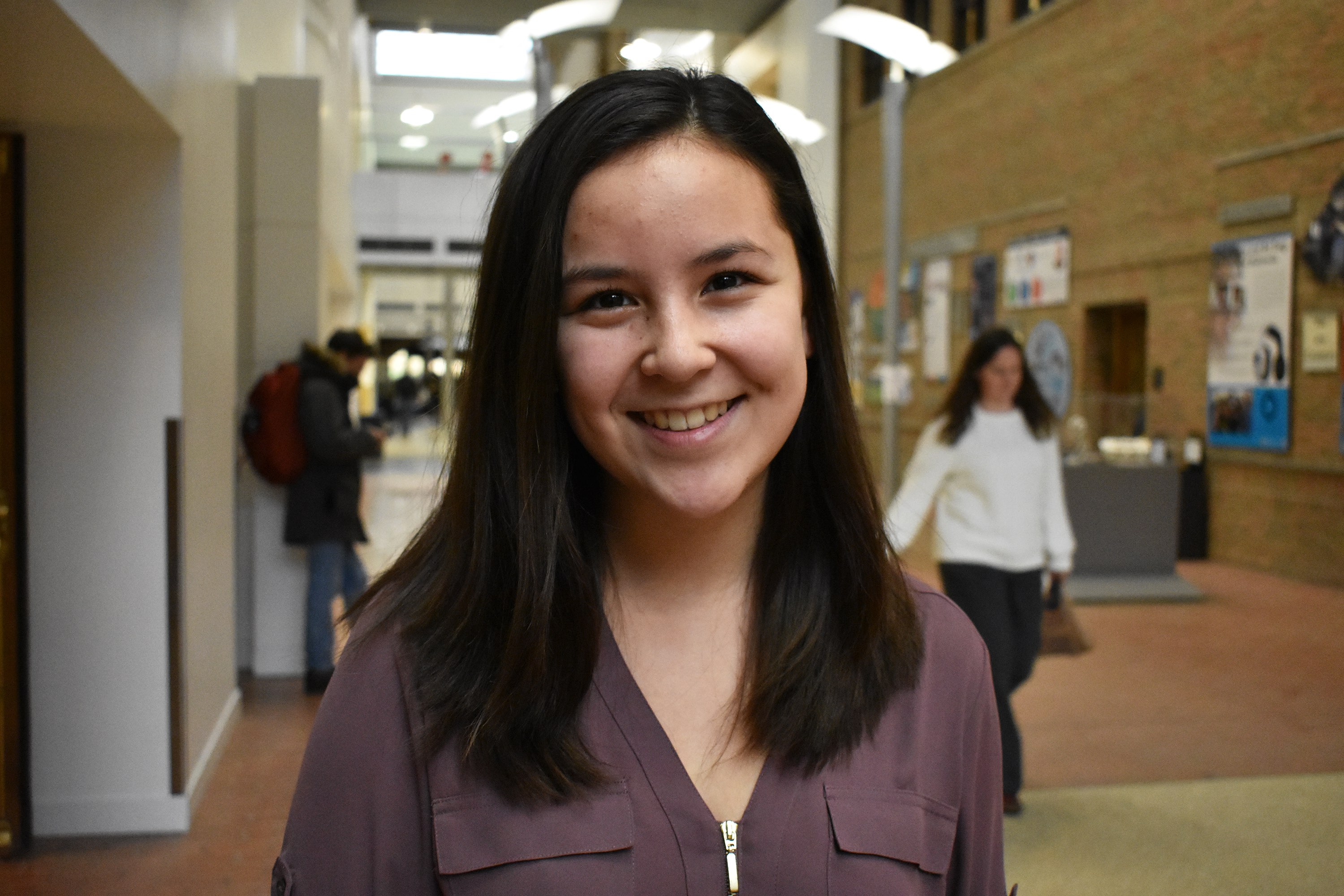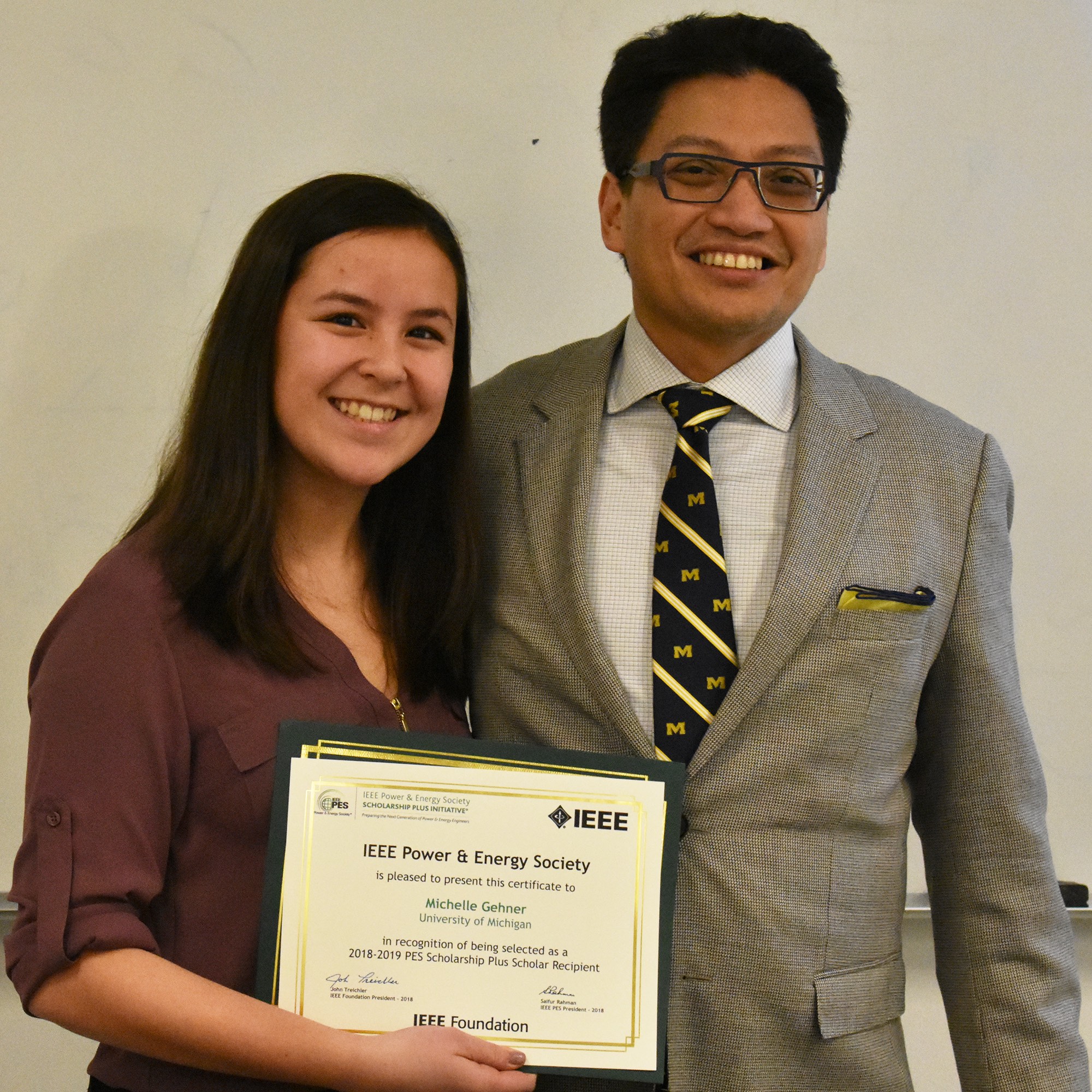Undergrad Michelle Gehner engineers better ways to explore new worlds
Gehner’s academic career includes advancing power electronics and crafting new extraterrestrial vehicles for MRover. She received the IEEE Power and Energy Society Scholarship for her promising future in power and energy.

 Enlarge
Enlarge
Michelle Gehner, a sophomore majoring in electrical engineering, has been awarded a scholarship by the IEEE Power and Energy Society for her excellent academic record and her work in the power and energy field. The award is given to students who show significant potential to impact the power and energy industry.
Over the summer, Gehner worked with Professor Avestruz’s Power Electronics and Energy Research Studios (PEERS) lab through the Undergraduate Research Opportunity Program. Her project goal was to figure out how to accurately measure quality factors of inductors for high-performance power electronics.
Power electronics are technologies used to convert electrical power from one form to another, and they’re particularly relevant for renewable energy and space-related projects. Inductors are large components of power electronics, but they’re difficult to analyze for their quality factors, because current methods of analysis – like network analyzers – are expensive and difficult to calibrate.

 Enlarge
Enlarge
“I was able to learn a lot about not only my major in a very specific field, but also how to use lab equipment,” Gehner said of the experience. “I learned how to go through the scientific process and become a good researcher.”
Gehner became interested in power electronics due to her passion for the space exploration industry. In addition to her involvement with the PEERS lab, Gehner is also a member of MRover, a student-run organization whose mission is to design and build a rover for a competition that aims to advance technology for the exploration of extraterrestrial environments.
“We simulate similar objectives that real rovers would have on other planets – collecting soil samples, traversing rough terrain, analyzing for signs of life,” Gehner said. “So many things have to work together in order for a spacecraft or robot to operate properly, and I think it’s really amazing to be able to apply my knowledge from the PEERS lab into the power system for MRover.”
Gehner loved her STEM classes in high school, and her father – a mechanical engineer – encouraged her to pursue a career in engineering. However, it wasn’t until she came to U-M that she was able to fully explore hands-on experience in a variety of engineering disciplines.
“My favorite thing about U-M is the immense amount of resources and opportunities there are to pursue what you’re passionate about,” Gehner said. “Even if I didn’t know what I was interested in when I first started going here, I was able to figure it out quickly because there are so many options for exploring your interests.”
Gehner reached out to Prof. Avestruz to learn more about electrical engineering, and he introduced her to his lab and connected her to undergraduate research opportunities. She works with graduate student advisors Sung Yul Chu and Xin Zan.
 MENU
MENU 
